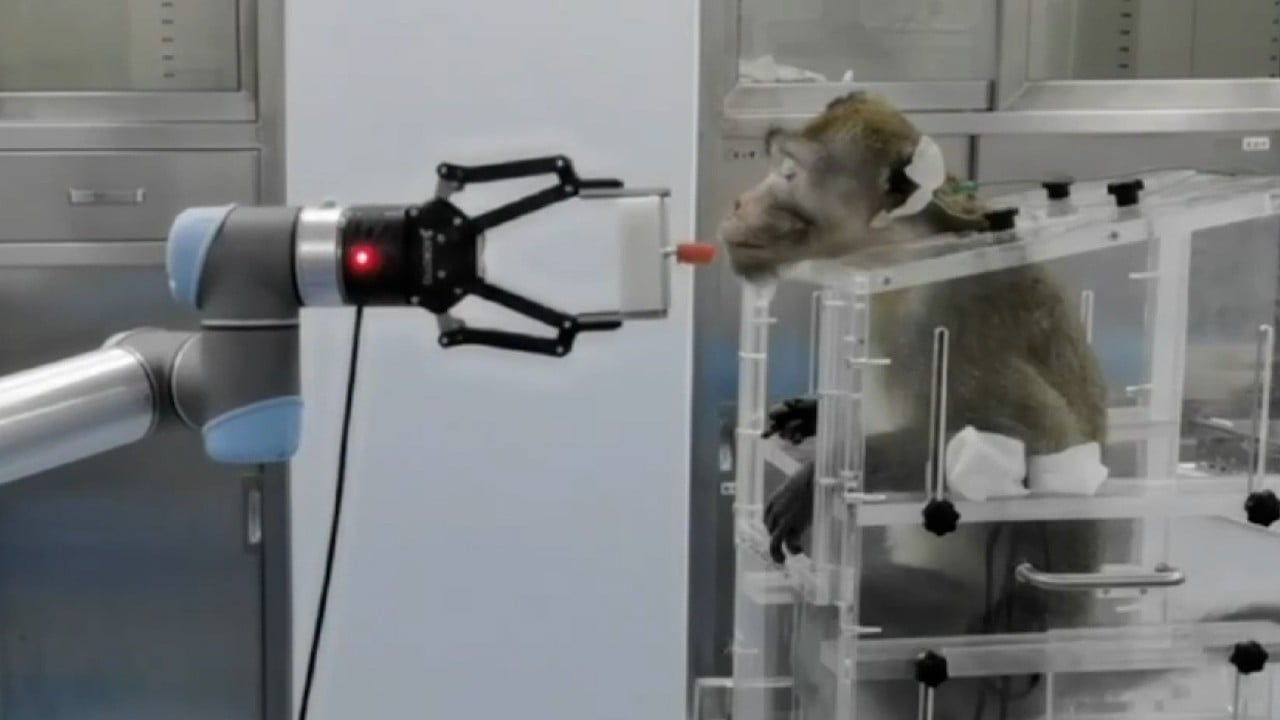
China sells quantum chips to Middle East and Western countries in show of growing influence in sector
- SpinQ’s QPU chip is a sign of successful venture into standardised mass production of the tech
- SpinQ aims to drive ‘common prosperity in the global quantum computing industry chain’, founder and CEO Xiang Jingen says
The sale by SpinQ, a pioneering company based in Shenzhen, comes soon after Chinese quantum chips were sold to the United States and its allies.
It showcases China’s growing influence in the quantum computing sector, underscoring its role in fostering global collaboration within the industry.
Founded in 2018, SpinQ has independently established a superconducting quantum computer R&D centre and a production line for superconducting quantum chips. The chip that was delivered, named QPU, represents a successful venture into standardised mass production of the technology, a key achievement for the industry.
“We are honoured by this collaboration. Delivering the superconducting quantum chip shows our skill and innovation in quantum computing. It also represents our commitment to worldwide collaboration in this field,” founder and chief executive Xiang Jingen said in a report by the state-owned Science and Technology Daily on Tuesday.
Chinese scientists claim record smashing quantum computing breakthrough
This list included entities such as the Hefei National Laboratory for Physical Sciences at Microscale (HFNL), which developed the world’s first quantum science satellite, Micius, and QuantumCTek Co, Ltd, originating from HFNL and specialising in quantum secure communication products, along with its Shanghai subsidiary.
SpinQ is among the fastest in China’s quantum computing industry to achieve an international market presence. During this trade, the company also engaged in technical exchanges with the buyer.
“This was a mutually beneficial learning process, providing us with invaluable global insights and cutting-edge information,” SpinQ vice-president Zou Hongyan said on the company’s website.
SpinQ has already extended its quantum computing products to five continents with clients across the US, Canada, Australia, Britain, Germany, Switzerland, Norway, Slovenia, Russia, Brazil, Japan and other countries and regions, according to the Science and Technology Daily report.
“From a global perspective, the US leads the quantum information industry, with China ranking high in the second tier. However, the technological development gap is not significantly wide,” Xiang told 21st Century Business Herald in September.
Quantum chips, which are akin to the CPU in classical computers, are pivotal to quantum computers. They contain multiple quantum bits (qubits) and use pulse sequences sent by quantum measurement and control systems to perform quantum gate operations between qubits, enabling specific quantum computations.
Producing a standard superconducting quantum chip is difficult because of its complex design, the need to ensure the qubits work consistently and remain stable, and challenges in the materials and technologies used for making and controlling them.
Through independent research and development, SpinQ said it had mastered key technologies – from chip design to complete machine and algorithm applications. Its proprietary chip production line is capable of producing consistent and stable superconducting quantum chips.
Chinese breakthrough a step towards scalable quantum computation: paper
The company has three major production lines: large superconducting quantum computers for industrial scenarios, small quantum computers for educational purposes and a general-purpose quantum cloud platform.
“Looking ahead, SpinQ aims to deepen its internationalisation strategy, driving common prosperity in the global quantum computing industry chain through increased international technical cooperation and exchanges,” Xiang said in the report.



